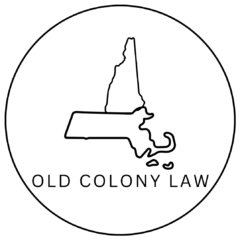CommonWealth Magazine’s Bruce Mohl discusses how the estate tax is getting caught up on the so-called “millionaire tax” debate:
THE POLITICAL FIGHT over the millionaire tax never seems to end.
It took eight years for the state’s unions to win passage of a constitutional amendment assessing a 4 percent surcharge on income over $1 million. And as soon as voters gave their approval in November, business groups began lobbying for tax breaks to offset the impact of the millionaire tax using many of the same arguments that surfaced during the years-long campaign.
Making Massachusetts more competitive was a central theme. The business groups said the millionaire tax increased the incentives for high-wealth taxpayers to relocate outside the state. The answer was to tone down or do away with other “outlier” taxes on wealthy residents to prevent the exodus from happening.
“The Massachusetts estate tax, income tax rates on small businesses, and capital gains rates do not make sense following the passage of the surtax. Reducing these taxes must be a core part of tax relief,” said the business-backed Massachusetts Taxpayers Foundation in a policy brief. Gov. Maura Healey, who supported passage of the millionaire tax, bought in to the business community’s reasoning on Monday, proposing a nearly $1 billion tax package that includes hefty tax breaks for parents, renters, and seniors and also pares back or eliminates taxes on estates and short-term capital gains, which primarily impact wealthy residents.
“Affordability, competitiveness, and equity” are the three words Healey used to describe the goal of the tax package. She also defended the estate and capital gains tax cuts as important because the taxes are to some extent unicorns. “What’s important here is Massachusetts not be an outlier,” she said.
Business groups hailed Healey’s package as a good first step. “There is much to support in this tax package, and it certainly represents a good first signal that the administration will work with the business community, especially with the inclusion of capital gains and estate taxes,” said James Rooney, the head of the Greater Boston Chamber of Commerce. “However, there remains much work to do to restore Massachusetts’ competitiveness to keep residents and businesses here, and we look forward to working with the Legislature on this tax package and the budget in the coming months.”
Harris Gruman, executive director of the SEIU State Council, which coordinates the efforts of all six SEIU unions in Massachusetts, said it’s obvious now that his eight-year fight for the millionaire tax didn’t end with its passage.
He views Healey’s proposal for the estate and capital gains tax cuts as a slap in the face of the voters who in November approved taxing the wealthy at a higher rate on every dollar they earn over a million.
“Why give back to millionaires who have just been asked by voters to pay their fair share. It doesn’t make a lot of sense,” Gruman said.
This post is a part of Old Colony Law’s Estate Tax Updates.
